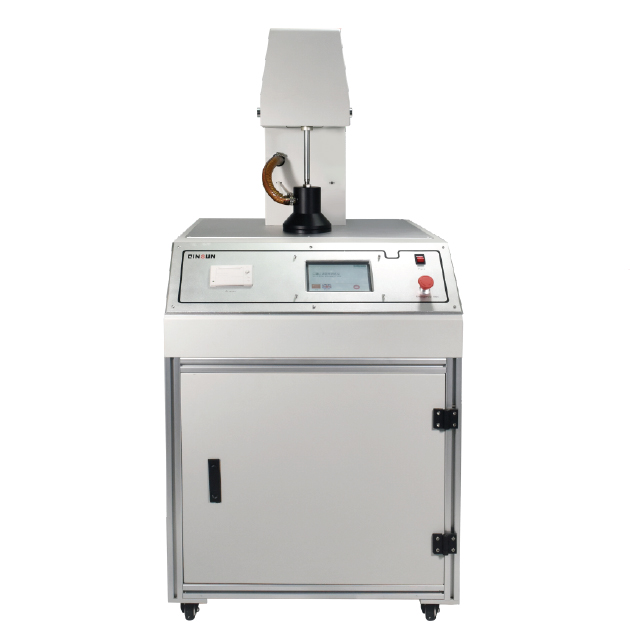FAQs about Automated Filter Tester
Automated filter material integrity testers meet GMP-certified integrity testing requirements and are suitable for testing the integrity of filter materials and filters of various sizes. They also enable in-line filter testing. They can test filter integrity using tests such as bubble point, diffusion flow (forward flow), pressure decay (holding pressure), and water immersion. Since integrity testing is performed only on the feed side of the filter, sterility on the discharge side is guaranteed.
Automated filter testers are highly advanced and efficient tools designed to accurately test and evaluate the performance of air filters. These testers are designed to automate the filter testing process, allowing users to test multiple filters simultaneously and obtain accurate results in a short period of time. Featuring programmable test sequences, real-time monitoring, and automatic data logging, automated filter testers provide a convenient and reliable solution for filter testing in a variety of industrial and commercial applications. Whether ensuring compliance with industry standards, monitoring performance over time, or for quality control purposes, automated filter testers provide a comprehensive and effective solution for filter testing needs.
FAQ1:What are automated filter testers and how do they work?
Automated filter testers are devices used to test the performance and efficiency of filters, particularly air filters. These testers work by measuring the pressure drop across the filter and determining the amount of particulate matter captured by the filter. The testers are automated, meaning the measurement process is performed automatically without human intervention. The measurement process typically involves flowing a controlled amount of air through the filter and measuring the pressure drop across the filter. The test results can be used to determine the filter's efficiency and whether it needs replacement. Automated filter testers are commonly used in HVAC systems, industrial processes, and other applications where air filtration is important.
FAQ2:What are the benefits of using an automated filter tester?
Automated filter testers offer several advantages, including:
Improved Accuracy and Precision: Automated filter testers use advanced technology to measure filter performance, providing precise results.
Time Savings: Automated filter testers can perform tests quickly and efficiently, saving time compared to manual testing methods.
Repeatability: Automated filter testers provide consistent results, allowing for accurate comparison of filters over time.
Improved Safety: Automated filter testers reduce the risk of human error and exposure to hazardous materials during testing.
Improved Efficiency: Automated filter testers can test multiple filters in a single cycle, improving overall testing efficiency.
Improved Data Management: Automated filter testers can electronically store and manage test data, allowing easy access to historical records.
Cost Savings: Automated filter testers can reduce costs and minimize waste associated with manual testing methods by testing filters before they reach the end of their useful life.
FAQ3:Which industries use automated filter testers?
Automated filter testers are widely used across a variety of industries because they can quickly and accurately test and evaluate the performance of air and fluid filters. The following are industries where automated filter testers are commonly used:
HVAC: In the HVAC industry, automated filter testers are used to evaluate the efficiency of air filters in heating and cooling systems, ensuring clean air within buildings and free of harmful particles and pollutants.
Automotive: The automotive industry uses automated filter testers to test the performance of vehicle air and fuel filters, ensuring proper engine protection and stable operation while reducing emissions.
Pharmaceutical and Medical: The pharmaceutical and medical industries use automated filter testers to evaluate the efficiency of filters in respiratory systems and medical devices, ensuring clean and safe air for patients and the proper functioning of medical equipment.
Aerospace: In the aerospace industry, automated filter testers are used to evaluate the performance of aircraft air filters, ensuring clean air for passengers and crew and protecting aircraft engines.
Industrial Manufacturing: Automated filter testers are used to evaluate the performance of filters in various industrial applications, such as air compressors, gas turbines, and diesel engines, ensuring that filters are functioning properly and protecting equipment from contaminants.
These are just a few examples of industries where automated filter testers are commonly used. Their versatility and accuracy make them essential tools for a wide range of applications where clean, efficient filtration is crucial.
FAQ4:What features do automated filter testers have?
Automated filter testers typically have the following features:
Accurate Measurement: Automated filter testers can accurately measure the performance of filters in a variety of industrial applications.
Automated Operation: The tester automates the testing process, making filter performance evaluation simple and efficient.
Customized Testing: Some automated filter testers allow users to customize test parameters and conditions to meet specific needs.
Data Management: Automated filter testers often include software that stores and manages test results, providing a clear and concise overview of filter performance.
User-Friendly Interface: Automated filter testers are designed with an easy-to-use user interface, making it easy for operators to perform tests and analyze results.
Flexible Connectivity: Automated filter testers can be connected to a variety of data acquisition systems, facilitating integration with existing systems and processes.
Durable and Reliable: Automated filter testers are designed to withstand harsh industrial environments and provide reliable and accurate test results over time.
Easy Maintenance: The tester is easy to maintain, reducing downtime and ensuring the system is always in optimal working condition.
FAQ5:What are the advantages of using an automated filter tester compared to manual testing methods?
Compared to manual testing methods, automated filter testers offer the following advantages:
Increased Efficiency: Automated filter testers can perform tests faster and more accurately, saving time and improving productivity.
Reduced Human Error: Automated filter testers eliminate the human errors that can occur with manual testing methods, resulting in more accurate and consistent test results.
Enhanced Testing Consistency: Automated filter testers utilize standardized testing procedures and conditions, ensuring consistent and accurate results.
Enhanced Data Collection and Analysis: Automated filter testers are often equipped with software that collects and analyzes test data, providing valuable information about filter performance and the efficiency of the filtration process.
Increased Safety: Automated filter testers often have built-in safety features, such as automatic shut-off mechanisms, to reduce the risk of injury or equipment damage.
Overall, automated filter testers offer advantages over manual testing methods in terms of efficiency, accuracy, and safety, making them a valuable tool for industries that rely on filtration systems.
FAQ6:What are the key factors to consider when selecting an automated filter tester?
When choosing an automated filter tester, consider the following key factors to ensure the tester meets your needs:
Test Parameters: Identify the parameters you need to test and ensure the automated filter tester you choose can accurately measure them.
Accuracy: Accurate test results are crucial, so ensure the automated filter tester you choose has high accuracy.
Ease of Use: Choose a tester that is user-friendly and easy to operate to save time and reduce the risk of errors.
Flexibility: Consider whether the tester can handle different types of filters and can easily adapt to changing needs.
Data Management Capabilities: Ensure the tester can store, analyze, and report data so you can track test results over time.
Durability: The tester should be rugged, able to withstand harsh conditions, and have a long service life.
Cost Considerations: Consider the cost of the tester and compare it to your budget and the benefits it will provide to determine its value for money.
Service and Support: Choose a manufacturer that offers reliable customer service and support so that any issues can be resolved quickly.


